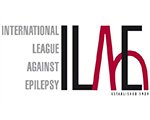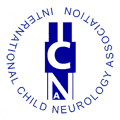Neuro-metabolic Disorders in Children
Welcome to our specialized section on Neuro-metabolic Disorders, where Dr. Ubaid Shah, a renowned pediatric neurologist based in Dubai, provides expert care and essential information on these complex conditions that affect the nervous system and metabolic processes in children.
What are Neuro-metabolic Disorders?
Neuro-metabolic disorders are a diverse group of conditions that result from dysfunction in the brain’s metabolism. These disorders are typically genetic and impact how the body uses nutrients and enzymes in the brain, leading to an accumulation of toxins or a deficiency in essential substances necessary for proper neurological function.
Common Neuro-metabolic Disorders
While there are many different neuro-metabolic disorders, some of the more commonly diagnosed in children include:
- Mitochondrial Disorders: Affecting the mitochondria, the energy-producing structures in cells, leading to energy deficiencies that can impact organ function, particularly in the brain and muscles.
- Lysosomal Storage Disorders: Such as Gaucher’s disease and Tay-Sachs disease, where harmful quantities of cellular waste products accumulate in the brain and other tissues.
- Organic Acidemias: Disorders that prevent the body from properly breaking down amino acids and certain fats, leading to harmful substances in the blood, urine, and tissues.
- Urea Cycle Disorders: Where the body cannot properly dispose of waste nitrogen, leading to dangerous levels of ammonia in the blood, which can affect brain function.
Symptoms of Neuro-metabolic Disorders
The symptoms of neuro-metabolic disorders can vary widely but often include:
- Developmental Delays
- Seizures
- Muscle Weakness
- Movement Disorders
- Intellectual Disability
- Behavioral Changes
- Vomiting and Feeding Difficulties
- Diagnosis of Neuro-metabolic Disorders
Diagnosing neuro-metabolic disorders requires a careful and comprehensive approach that may include:
- Genetic Testing: To identify specific mutations.
- Metabolic Screening: Including blood and urine tests to look for abnormal levels of substances.
- Imaging Studies: Such as MRI or CT scans to view detailed images of the brain.
- Biopsy: In some cases, to examine tissue samples for abnormalities.
Treatment and Management
Treatment for neuro-metabolic disorders is highly personalized and may include:
- Dietary Management: To control the intake of certain nutrients.
- Medications: To manage symptoms or replace deficient substances.
- Enzyme Replacement Therapy: For disorders like lysosomal storage diseases.
- Gene Therapy: A promising approach for some genetic metabolic disorders that targets the underlying genetic causes.
Our Commitment
Prof. Ubaid Shah and our dedicated team are committed to providing specialized care tailored to the needs of children with neuro-metabolic disorders. We understand the challenges these conditions present and offer support to families navigating these complex diagnoses.








